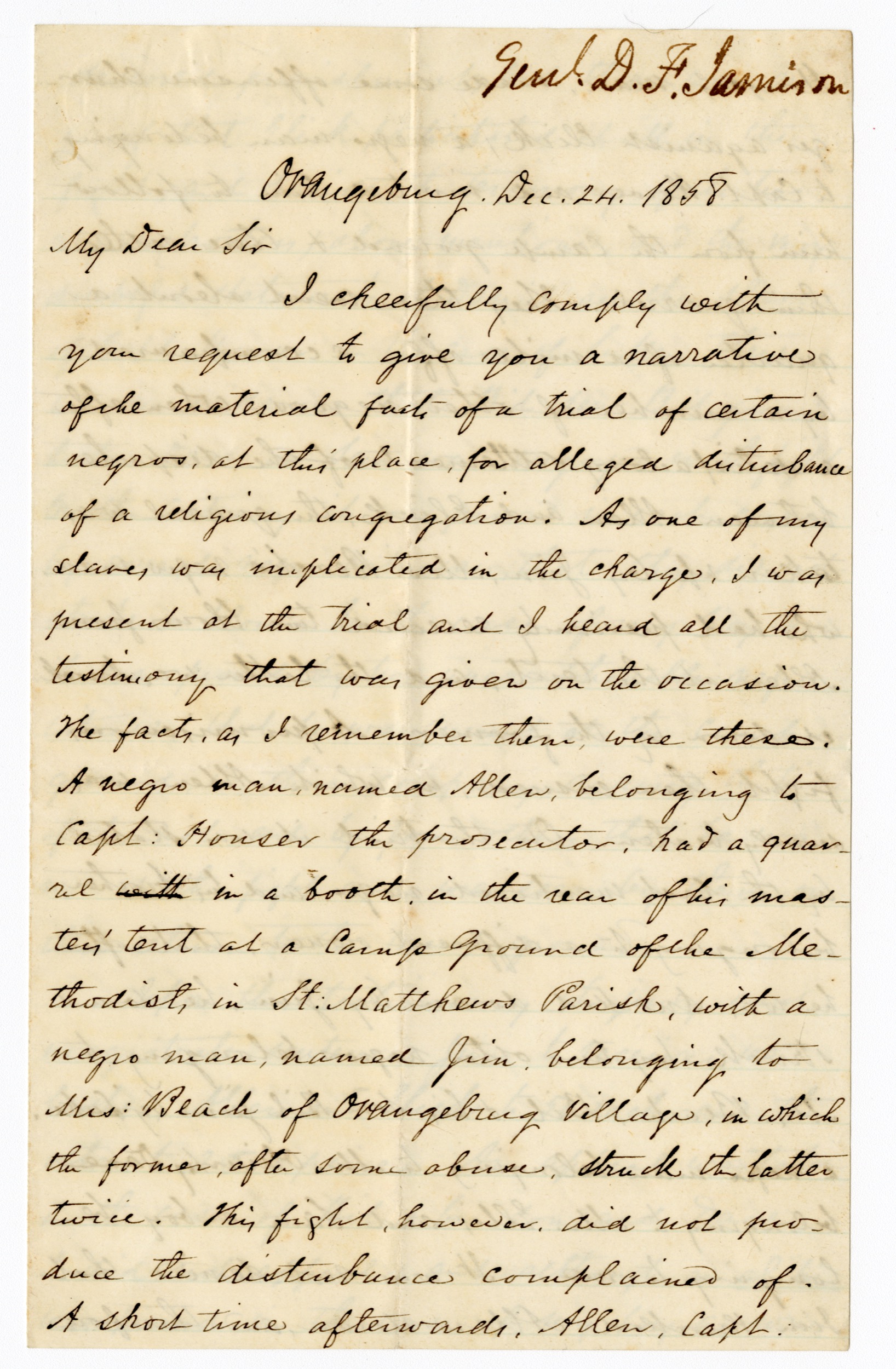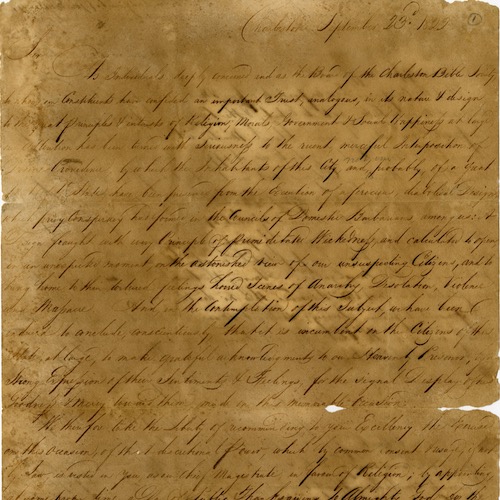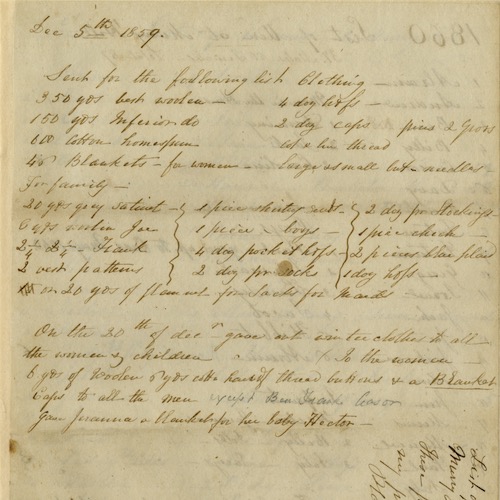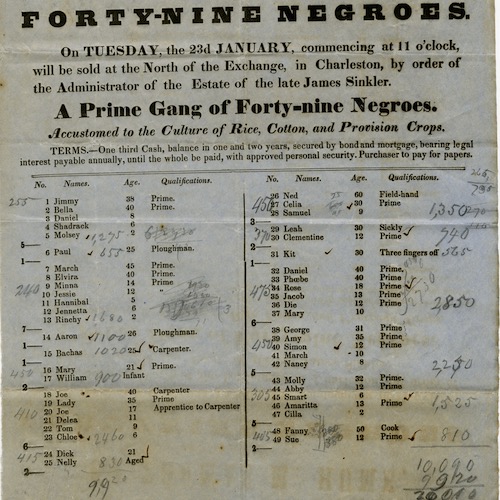About the Collection
The Allston Family Papers, 1730-1901 collection contains numerous bound volumes and hundreds of loose papers kept by members of the Allston family between 1744-1865.
One of the most prominent members of the Allston family is Robert Francis Withers Allston (1801-1864), a plantation owner and 67th Governor of South Carolina. He married Adele Petigru, and their children were Benjamin Allston (1833-1900), Robert Allston Jr. (1834-1839), Charlotte Francis Allston, Louise Gibert Allston, William Petigru Allston, Charles Petigru Allston (1848-1922), Jane Louise Allston, Adele Allston, and Elizabeth Waties Allston. A Georgetown County family, the Allston’s owned many area plantations, including Waverly Plantation, Nightingale Hall Plantation and Matanza Plantation, later known as Chicora Wood Plantation.
Volumes kept by Robert F.W. Allston record travel expenses in New York, payments and balances, receipts for items and wages for plantation overseers, debts and purchases, and a record of cattle and crops. Most volumes document the enslaved persons at Waverly, Nightingale Hall, and Matanza (Chicora Wood) Plantations with information on the births, deaths, and marriages of these enslaved people. Another volume discusses Robert F.W. Allston visiting Manassas, Virginia at the Battle of Bull Run during the Civil War in 1861, conversations about the battle, the atmosphere of the army camps, and the death of General Barnard E. Bee.
Additional volumes kept by the Allston family contain topics such as a presentation of a billiard table to the Lunatic Asylum, a meeting with Laymen in Philadelphia, Pennsylvania, work on the Georgetown Railroad, newspaper clippings on politics and the electoral college, a written statement surrounding the different views over slavery between the northern and southern states, and a summary of the lecture given by Charles Sumner at the Boston Mercantile Library Association. The lecture discusses the Missouri Compromise, the “peculiar institution of the south,” history of slavery by the nations of antiquity, importation of slaves into the English world, a timeline of slavery in the United States, and Charles Sumner’s opinions of slavery as being cruel and sinful.
Loose papers contain numerous wills of Allston family members, many of which name specific enslaved people who were seen as faithful to their slaveholders and—as a result—set to “receive every proper kindness” and yearly financial compensation from the Allston family. Other papers include appraisements of enslaved persons, accounts of clothes, blankets and shoes given out at Fairfield and Point Plantations for taxes, numerous contracts and agreements over the purchases of enslaved persons, receipts for hiring out enslaved carpenters and laborers, slave bills of sale, mortgages taken out for enslaved persons, final notices for an auction of Nightingale Hall Plantation and it’s enslaved population, names of enslaved persons and their valuations, statistics of a rice plantation detailing the operations of over-seeing one-hundred enslaved persons, lists of births and deaths for enslaved persons, impressment documents for enslaved persons sent to work for the Confederate States of America, a collection of overseer reports discussing an enslaved family who escaped from the plantation, and controversy surrounding a court case in which enslaved persons received severe punishments.




